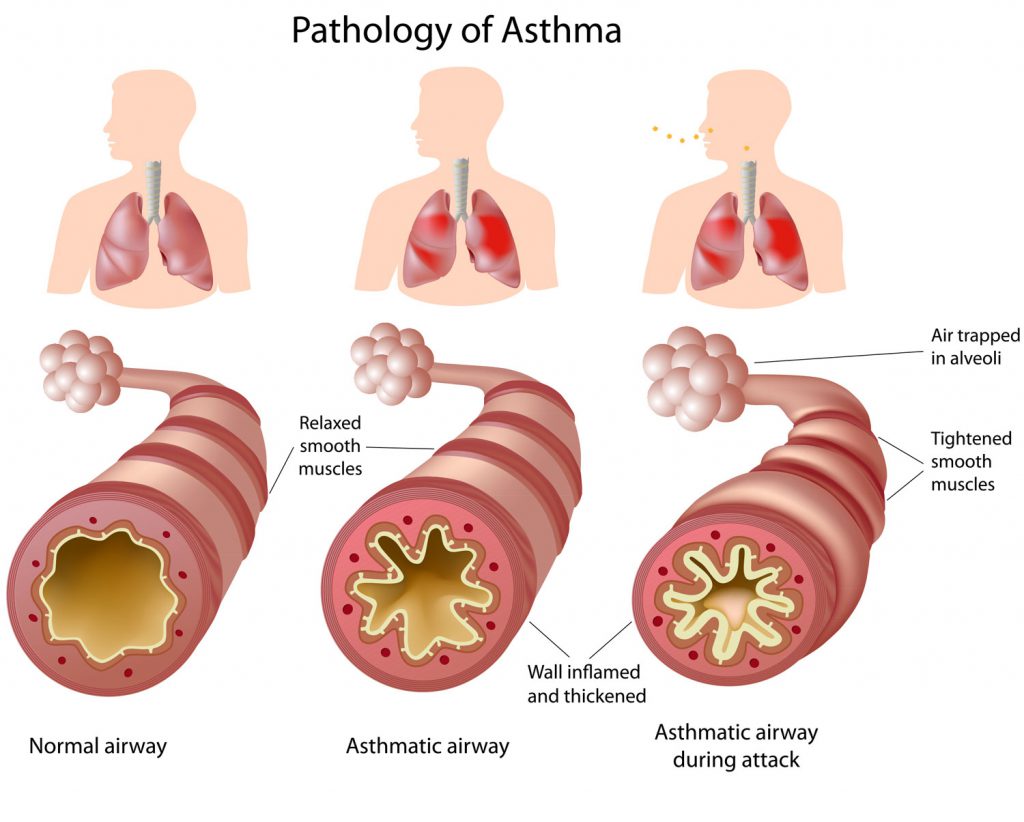There are 25.7 million people living in the United States with asthma. It is one of the most common reasons adults and children miss work and school.
Asthma is a chronic disease that affects the airways in the lungs. Patients with asthma suffer from constant airway inflammation (swelling and irritation). When exposed to certain triggers, the airway inflammation can worsen, leading to more swelling along with tightening of the muscles around the airways and increased mucus production.
People with a family history of asthma or allergies are more likely to develop asthma than those without. In addition, patients who have known allergies or eczema are more likely to develop asthma. There are also patients at greater risk for asthma based on occupational exposures at work.

Frequently Asked Questions About Asthma
- Wheezing
- Chest tightness
- Shortness of breath
- Cough
Asthma symptoms occur most often at night and in the morning, but can happen at any time. Your asthma symptoms will become exacerbated when you are near your triggers. However, these symptoms alone are not characteristic of asthma.
- Cold/respiratory illnesses
- Weather changes
- Inhaled allergens: pollen, dust mites, mold and animal dander
- Airway irritants: tobacco smoke, wood smoke, room deodorizers, fresh paint, perfume and cleaners
- Exercise
- Certain medications
- Certain health conditions: acid reflux, sleep apnea, sinus infections, obesity and depression
The first step to getting control of your asthma is understanding your triggers and how to avoid them. A board-certified allergist can assist you with both.
In order to diagnose asthma, your board-certified allergist will obtain a detailed medical history, perform a physical exam and likely conduct specialized breathing tests to look for airway function. Most specialized breathing tests can be conducted in the physician’s office and do not require any specific preparation on the patient’s behalf. The tests will be interpreted by your board-certified allergist at the time of your visit.
Depending on the severity of asthma, the appropriate treatments can range from as-needed inhalers, maintenance medications, allergy shots, and/or injectable medications.
Adults with untreated asthma are at increased risk for severe and life-threatening asthma attacks as well as potential loss of lung function. Asthma is the most common chronic illness among children.
Is your asthma getting in the way of your daily activities?
Our team of board-certified allergists can ensure you get the proper diagnosis and treatment plan so you can get back out there!
Don’t wait any longer to get a medical diagnosis and an effective treatment plan. If you think you or a family member may suffer from asthma, schedule an appointment right away.
